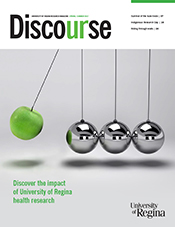U of R researchers are providing multi-level approaches to rural dementia care.

Former pastor Ron Parrott was described by friends and family as “the kindest man in the world,” but cracks began surfacing in the late ’90s.
“Initially, I thought he was depressed,” says his wife Edna Parrott, former director of homecare for Sunrise Health in Yorkton.
“Then came personality changes where he’d put himself down. I took him to our family doctor who only saw him for 10 minutes and said, ‘Ron’s fine—there’s nothing to worry about.’ But I knew differently. I saw him 24-7. He was more paranoid and forgetful, and his attitude and perceptions were off.”
Parrott felt like she was hitting a brick wall and wanted someone—anyone—to confirm her suspicions.
“I begged to get a referral to a neurologist in Saskatoon, and after several tests, Ron received a confirmed Alzheimer’s diagnosis in 2002. I knew where to get resources because I worked in homecare, but still, it was exhausting.”
Ron’s condition slowly worsened, causing him to step away from his pastoral duties. Parrott left her job to look after him full time, as Ron often wandered. She remembers her panic, isolation, and loneliness.
“What I was feeling paled in comparison to what Ron was going through,” she says. “I remember being sick one day, so Ron went to church by himself and nobody talked to him—and these were our friends. The stigma of this disease is terrible. Nobody knows what to say to someone with dementia, so they say nothing.”
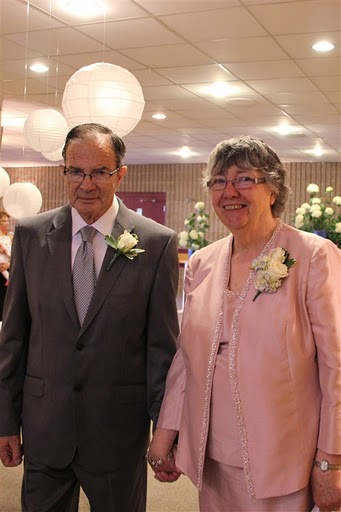
Parrott made a point of speaking with the pastor, who in turn talked to parishioners. “Things were better after that because of the awareness, but the initial rejection stung.”
Ron passed away in care in 2013.
The sobering facts
Dementia is an umbrella term for diseases caused by abnormal brain changes. Symptoms become severe enough to interfere with daily life and may include memory loss, impaired reasoning and judgment, and mood and behaviour changes.
At one end of the spectrum are mild memory lapses, and at the other end are diseases like Alzheimer’s, frontal-temporal dementia, and Lewy body dementia. Medications can slow the onset of symptoms, which makes early diagnosis important.
Stats indicate that 19,000 Saskatchewan residents and half a million Canadians live with dementia—many still residing at home. Dementia numbers are expected to rise dramatically as baby boomers age, considering that age is the greatest risk factor for getting the condition.
“We know that the longer people can stay in their own homes and communities, the better their health outcomes will be.”
Scientists believe Alzheimer’s disease is caused by abnormal buildups of proteins in the brain, impacting one’s ability to think, remember, and function, but the precipitating factors are not well understood. One thing is certain: there is no cure, and work still needs to be done to reduce stigma and help those with all forms of dementia and their caregivers lead better lives. Lucky for Saskatchewan, researchers and practitioners from across the province are dedicated to making that happen.
Dr. Bonnie Jeffery’s findings
University of Regina researcher Dr. Bonnie Jeffery of the Saskatchewan Population Health and Evaluation Research Unit—or SPHERU—is making big changes in the field of dementia care in Saskatchewan. She leads a team from the U of R that has spent decades on the frontlines working to better understand aging and dementia, particularly in rural Saskatchewan.
“We know that the longer people can stay in their own homes and communities, the better their health outcomes will be,” says Jeffery, a professor in the Faculty of Social Work based out of Prince Albert.
“The more we delay older adults from entering a long-term care facility, the cheaper and less stressful it is for everyone. But barriers still exist. Saskatchewan has 1.2 million people and one-third live in rural areas—many of them older adults. With the end of provincial-rural bus service, it can be hard to find rides to see specialists in the city.”
Jeffery adds that it’s also stressful to drive to the city to see a specialist. “How do you cope in unfamiliar surroundings or navigate traffic and parking?”
Rural memory clinics
Ron Parrott was diagnosed with dementia in 2002 at a specialist memory clinic at the University of Saskatchewan (U of S). In 2017, Rural Dementia Action Research (RaDAR), led by Dr. Debra Morgan, branched out to provide rural primary-care memory clinics run completely by local healthcare providers.
Morgan and her team at RaDAR collaborate with Jeffery and her team to best support older adults living with dementia, along with their care partners.
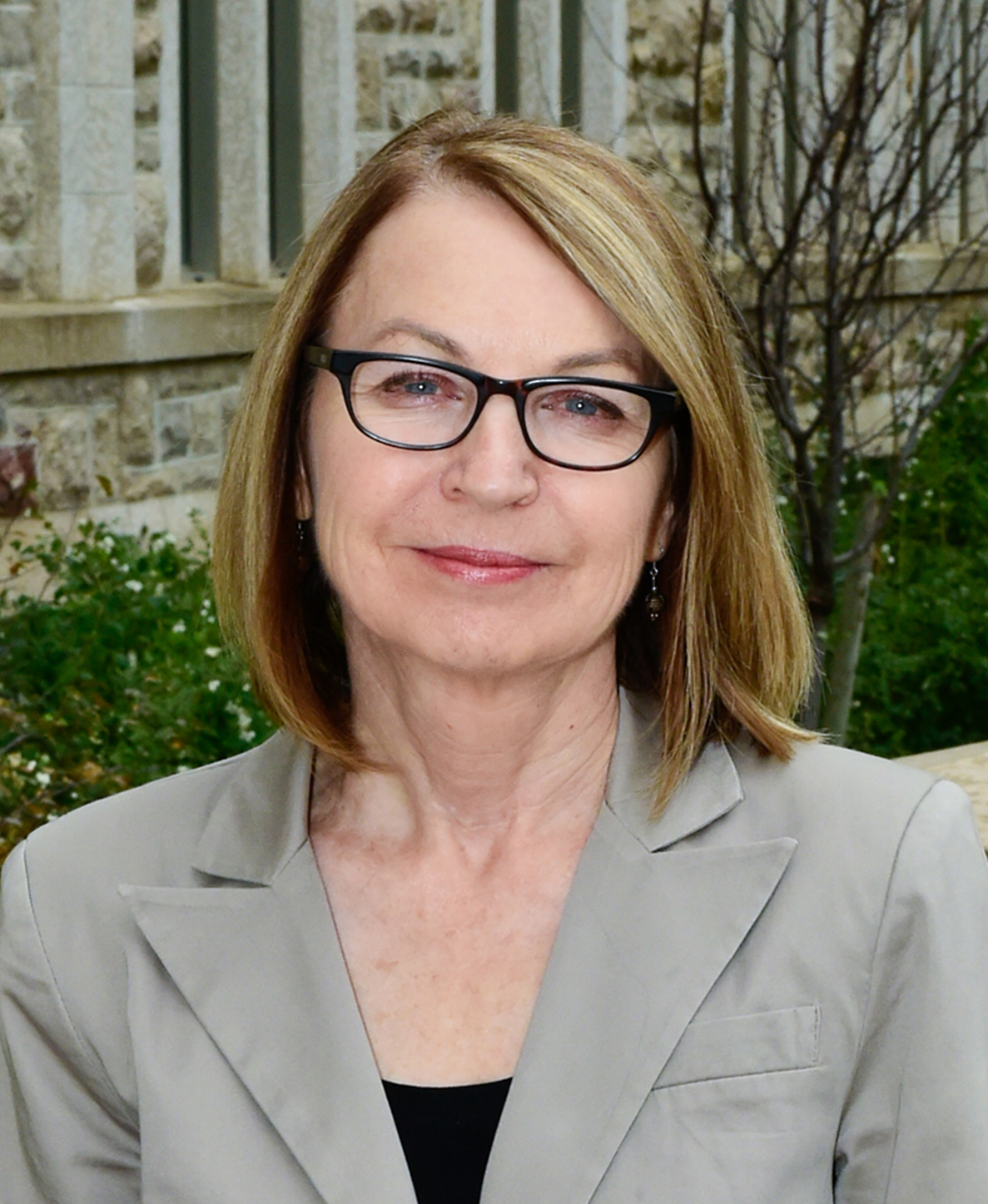
“Older adults could now get assessment and treatment in their home communities,” explains Morgan, professor and chair of Rural Health Delivery at the Canadian Centre for Health and Safety in Agriculture at the U of S. “Local teams may include primary care physicians, nurse practitioners, social workers, occupational and physical therapists, homecare nurses, and Alzheimer’s First Link coordinators. We train them on what to look for and how to make a proper dementia diagnosis.”
Morgan says rural providers know their clients best, but they need resources to properly diagnose. “Some family physicians initially don’t feel confident making that diagnosis, so we developed a program of best practices so inter-professional teams could work together,” says Morgan.
Colleague Dr. Julie Kosteniuk says it’s been a game changer, with rural memory clinics being offered in Kipling, Bengough, Weyburn, Carlyle, Maryfield, and Lampman. Recently, thanks to federal funds received by Bonnie Jeffery, a seventh memory clinic has opened in Esterhazy (more on the funds later).
“Local teams treat those living with dementia holistically,” adds Kosteniuk, who is an assistant professor in the Canadian Centre for Rural and Agricultural Health in the College of Medicine at the U of S. “During these three-hour memory clinics, patients are checked for cognitive function to see if they can pay bills, order groceries, and cook for themselves, and whether they’re stable on their feet—all important factors in living successfully on their own.”
Kosteniuk believes healthcare should be more locally driven.
“We often don’t need to keep referring people with dementia to specialists. We’ve learned that local providers can do the job themselves if given proper training and resources. This frees up big-city specialists to work on more complex cases, ultimately resulting in shorter wait times.”
Morgan adds that patients accessing local memory clinics are often calmer and more relaxed, no longer worried about big-city traffic or getting home in daylight hours.
Edna Parrott, who attended one of the early clinics, says it was a lifesaver. “They weren’t just concerned about my husband, but me as well. Caregivers suffer the brunt of burnout looking after loved ones. They gave me tools and resources to keep going and not feel so alone.”
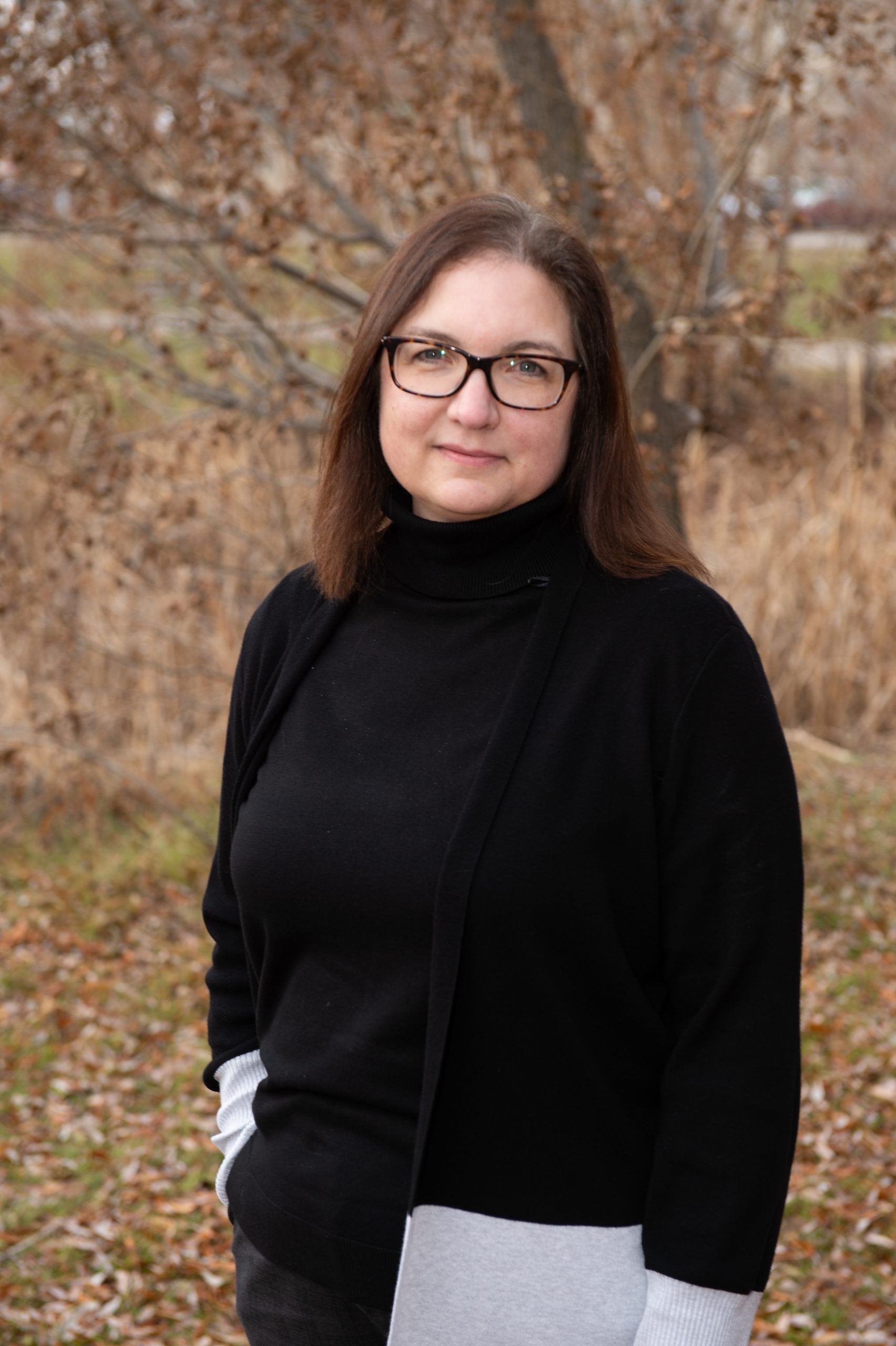
Securing federal funding
After seeing the success of rural memory clinics, Jeffery felt it was important to address wider aspects of rural dementia care.
“We looked at ways to reduce stigma, raise awareness, educate businesses on how to accommodate customers experiencing dementia, and provide support to caregivers like Edna to reduce isolation and loneliness,” Jeffery says.
In 2019, Jeffery was granted five-year federal funding of $3 million to support a range of projects addressing dementia.
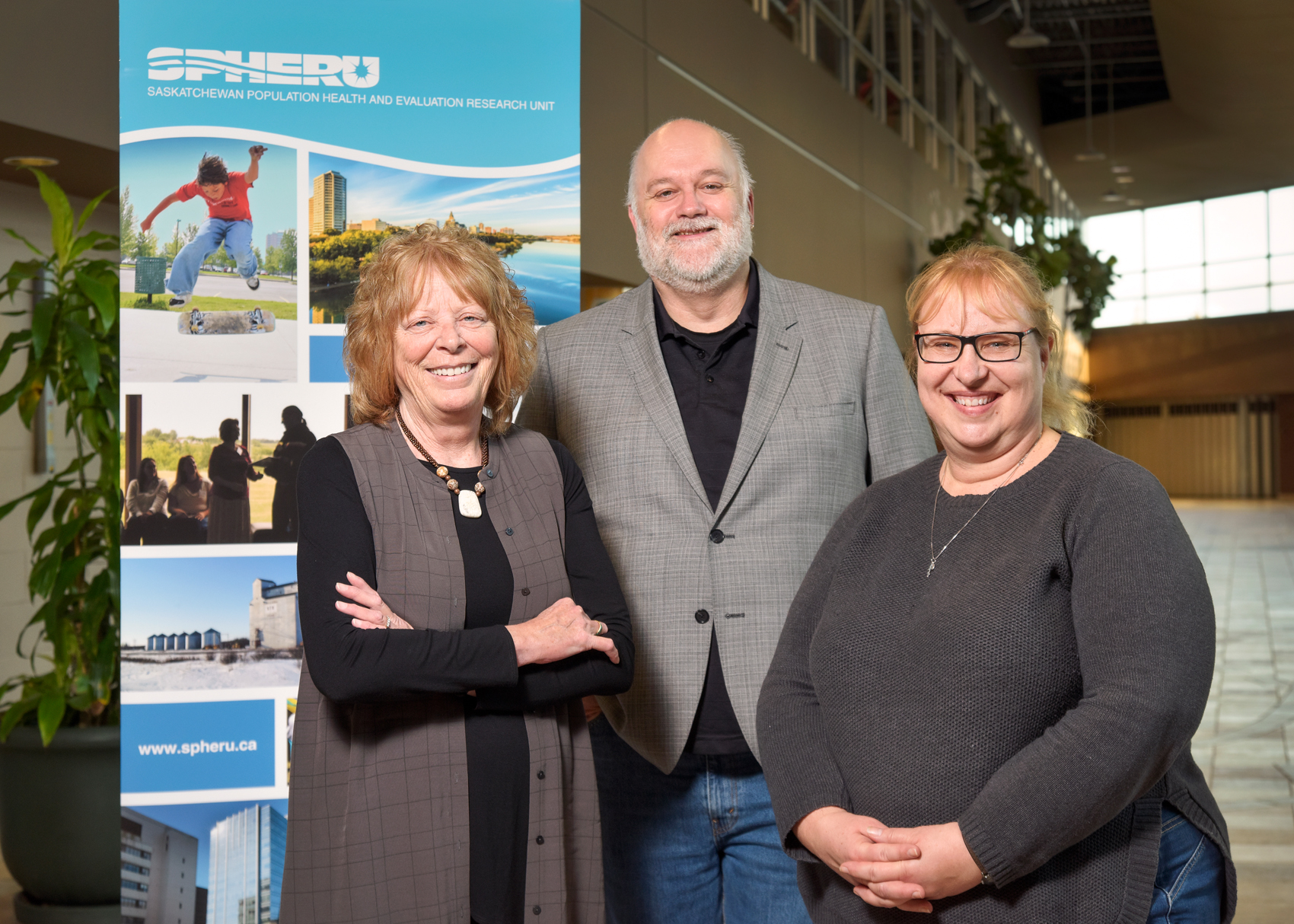
Eight projects were juried by Jeffery’s team and awarded funding. These included an awareness campaign with the Alzheimer’s Society, a kitchen meet-up to cook and learn new recipes, and a culturally-relevant program for Métis people in Île-à-la-Crosse. (See the full program list at: ruraldementiask.ca.)
One of the projects was a program called Belong Where you Find Yourself at the Godfrey Dean Art Gallery in Yorkton.
Artists Amber Phelps Bondaroff and Alana Moore reached out to fellow artists—12 in total—to team up with those living with dementia to help tell their stories. The project has been running for the past two years.
“We met people where they were on their journey through dementia, and found ways to compassionately tell their stories using photography, painting, musical theatre—you name it. We couldn’t rush the process. It took time for people to open up and feel comfortable so we could turn their stories into art.”
During that time, Phelps Bondaroff had a baby girl, Lumi, who added an unexpected gift.
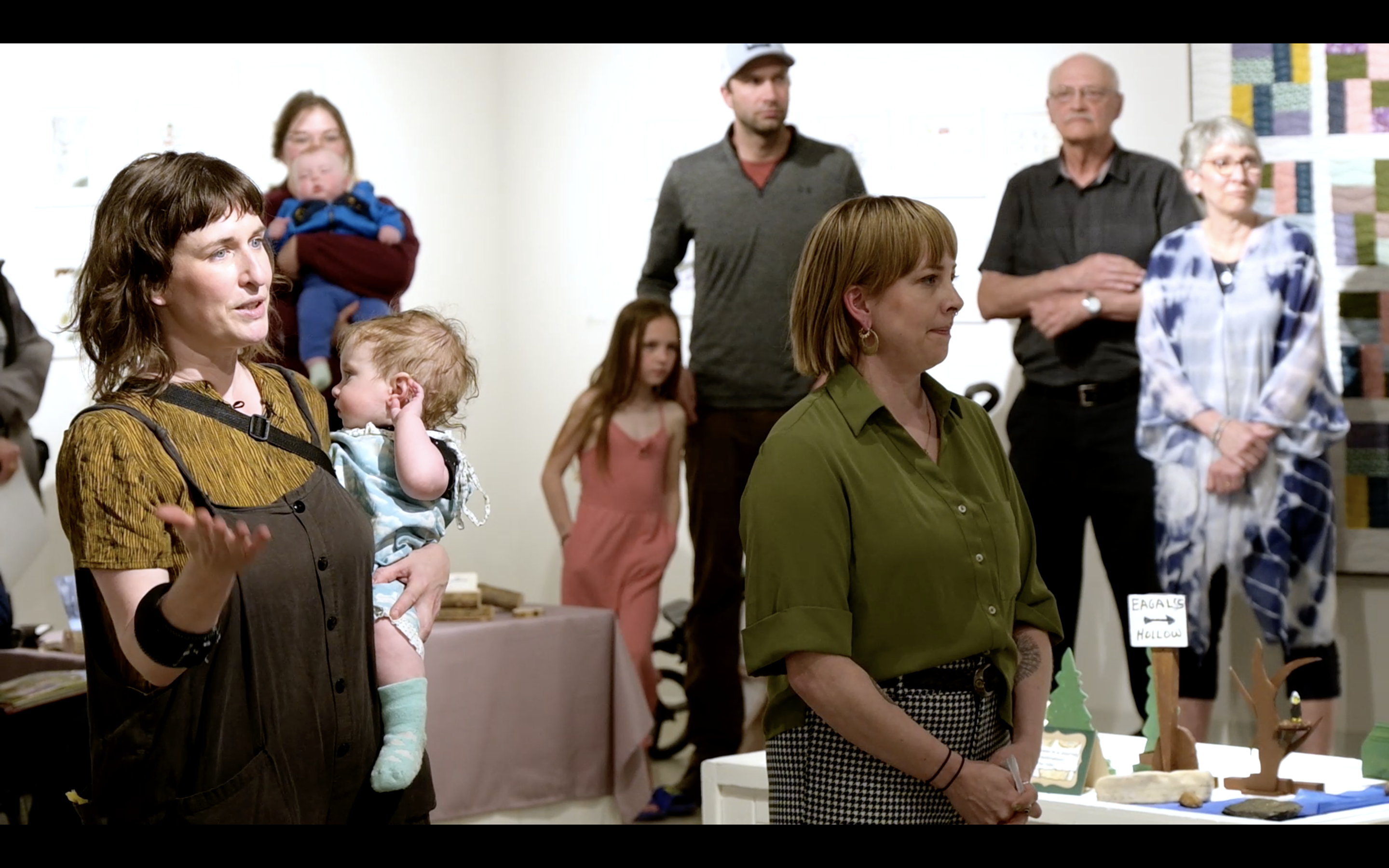
“Babies don’t talk and neither do many of those living with dementia. But Lumi helped them open up and converse in a simple, pure way. As a new mom, I’ve found this the most supportive work I’ve ever done. I’ve forged friendships and connections I’ll never forget.”
Looking ahead
Stories like this make Jeffery smile, confirming that the work she’s doing is making a difference.
“More people are now living with dementia, so we have to learn patience. If someone’s holding up the line at a grocery store and they seem lost and confused, don’t roll your eyes. Reach out and see if you can provide assistance. It all comes down to basic human kindness.”
While this is the last year of Jeffery’s $3 million funding, she’s confident more resources can be found to continue rural programming and expand rural memory clinics. “There’s still so much work to do. I’ve dedicated my career to rural issues and don’t plan on stopping anytime soon.”
Jeffery has a huge and loyal following, including Edna Parrott who sits on her advisory board and is an outspoken advocate for reducing stigma and raising dementia awareness. Parrott has nothing but praise for Jeffery’s leadership.
“She’s an inspiration—an instigator who gets things done,” says Parrott. “I’m absolutely amazed at what she’s been able to accomplish in such a short time. By increasing awareness, we’re not just helping people like my late husband, Ron, but the entire family and community as well. That’s comforting.”
Interventions to Enhance Social Inclusion of Older Adults with Dementia is funded, in part, by the Government of Canada’s New Horizons for Seniors Program.














